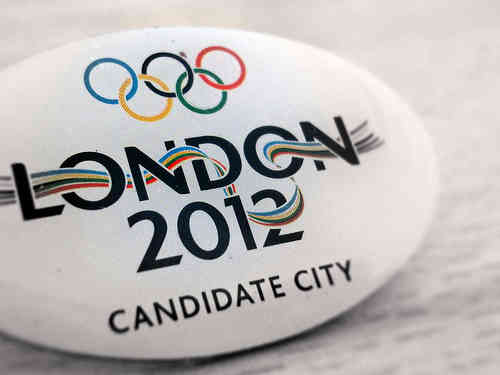
The 2012 London Olympics will be the most wired yet but, true to its modest ambitions relative to Beijing, will focus on mass viewer appeal over cutting-edge online media, organisers say.
“We don’t necessarily see this as, first and foremost, an opportunity to innovate,” Alex Balfour, new media head for the Olympic games organising committee, told the Mobile Entertainment Market ’09. “We’re focusing very much on mass-engagement possibilities – some of our innovation will come through how we deal meet the challenges of scale, not of bleeding-edge technology.”
2012 communications director Jackie Brock-Doyle said new tech may be showcased by sponsors but: “There’s a perception that everyone will be walking down Oxford Street watching the 100 metres final on their mobile phone … Lots of people get very excited about bleeding-edge technology and what can be used … bleeding-edge doesn’t have an opportunity in the core games because the media has to be reliable, tested and tried…”
“We have to use technology that will have the greatest impact.” If that sounds like a lost opportunity, it’s not necessarily, because the committee’s role is to deliver the games themselves, leaving digital experiments to broadcast rightsholders like BBC and sponsors like Adidas.
— Big mobile roll-out: But London’s games, aiming to guarantee a large-scale communications infrastructure, will be especially mobile. Balfour said Vancouver 2010 will trial Samsung’s “Wireless Olympic Works“, a 3G info service that only Olympic officials used in Athens and Beijing, with the public for the first time: “Assuming that’s successful, it may be an interesting deployment for us, we’re in very early discussion around that.”
Balfour is planning a mobile roll-out around “results, mapping and wayfinding and transactions” – the latter around signing up volunteers, torch runners and ticket buyers. And 2012 hopes to “optimise people’s use of mobile phones in a mass-scale event over a short period” – for example, by granting mobile networks access to “temporary masts” to deliver audio and video from rightsholders. “In the UK, the BBC has an expectation to put all 4,500 hours of the games on the internet – that will presumably involve delivering to mobile … We’ll have 14,000 users connected to a dedicated network, it has to be deployed at a service level that’s way, way above anything you’d expect from a normal service because it has to have 100 percent uptime.”
— Social-engagement Olympics: The committee has already been producing YouTube videos and is also planning on pushing content out through Flickr: “We see them as partners in the same way we see mobile networks,” Balfour said. The big roll-out will be “My 2012”, a “scrapbook” that would serve as “an opportunity to aggregate all the content that people are aggregating anyway”. That means offering an “Add to My 2012”-style share button to sites like YouTube so users can add their own material, which could even feature as murals on Olympic venue exteriors.